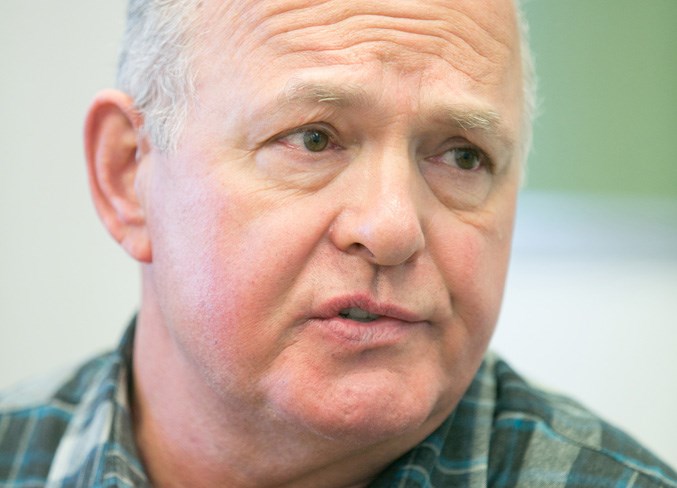Local probation officer Bruce Herzog retired this spring after a 30-year career mostly spent in Olds.
He started his job in Peace River in January 1983, then moved to Olds about five years later.
Herzog says over the years, he's dealt with a wide range of people from every walk of life.
"We've had all kinds of people," he says. "We've had clergymen. We've had doctors -- medical doctors. We've had millionaires. I once had a millionaire owner of a hockey team -- a junior hockey team -- on my caseload.
"If you're interested in people, you've come to the right place. There's a never-ending variety. And I'm going to miss that."
Herzog says the biggest change he's seen over the decades -- and the toughest part of his job -- has been the rise of addiction-related issues. Some of that revolves around drugs, but he says the biggest common denominator is alcohol.
"We're seeing horrendous addiction issues, and it's really difficult to deal with, because there's no blueprint for that," Herzog says.
"You take people and get them addicted to meth or crack or some of that other stuff and any pro social values they have are gone. They're just gone.
"So trying to work with people like that who one minute are sitting across the table and they're motivated; maybe they're detoxing, maybe they're scared, maybe they just got busted. And they seem for all the world like they understand the changes that have to happen in order for them to get their life back on track.
"And the next day they're gone somewhere. And there are warrants outstanding and there's a rash of vehicle thefts," he adds.
"The way that that kind of stuff impacts on families, kids, is the hardest part of the job to deal with."
Herzog says the best part is that despite all that, the vast majority of people he dealt with -- maybe 95 per cent of them -- have been good people.
"They made a wrong move; they've got a problem. But they want to fix it. They're pro-social people who work hard, love their families," he says.
"I've met so many good people. When you've been here as long as I have, you see these people in the grocery store and you see their kids. I've even seeing grandkids now.
"It just makes us realize how fortunate we've both been in our lives to have good parents, opportunities -- just the things a lot of people take for granted. We're reminded all the time how fortunate we are and how easily things could be different," he adds.
"You look for opportunities to try to break through those issues and help contribute to some positive change."
Herzog says one thing he's not going to miss are the problems related to alcohol.
"People drink. It's legal, if you're 18. It's socially acceptable. It's encouraged in many situations. But for some people, it's just -- bad news," Herzog says.
As a result, he says, they tend to get in trouble with the law, through infractions like drunk driving or fighting or other issues.
In fact, Herzog says, alcoholics are over-represented in jails, just like some other segments of society, such as aboriginal people or the mentally ill.
"I've probably got half a dozen files anyway where I open up the file, look at the computer screen, talk to a spouse or a parent, and I go, 'this guy probably wouldn't even be here if he wasn't an alcoholic,'" Herzog says.
"He wouldn't have a criminal record, let alone two and a half pages. You go through their record, you see the assault a police officer, the resist arrest, the cause disturbance, the impaireds. You don't have to be a rocket scientist to identify that problem.
"And when you deal with it head-on and you learn how to maybe strike the right chords with an individual who is usually terrified to deal with their problem because they've spent their whole life using their problem to avoid the real issues in their life typically, it's amazing the difference that you can see in people.
"And that -- you know, it's a funny, ironic sort of thing, I guess -- that's what I'm going to miss most about the job. But it's also what I'm not going to miss -- what booze does to so many good people. And their families -- their kids.
"So much of it is hidden to the average person. They're just not aware of the impact of alcohol, addiction and abuse on our communities," he says.
Crime isn't perpetrated only by those with a low income, Herzog says.
"It's not just people who are struggling to make ends meet and then when they do get some money they drink and wind up having a fight; it's not restricted to situations like that," he says, adding that some wealthier people have also been found to have committed frauds, forgeries, tax infractions and other business-related crime.
"And don't even start talking about sex offences -- that happens at every juncture in our society," he says.



